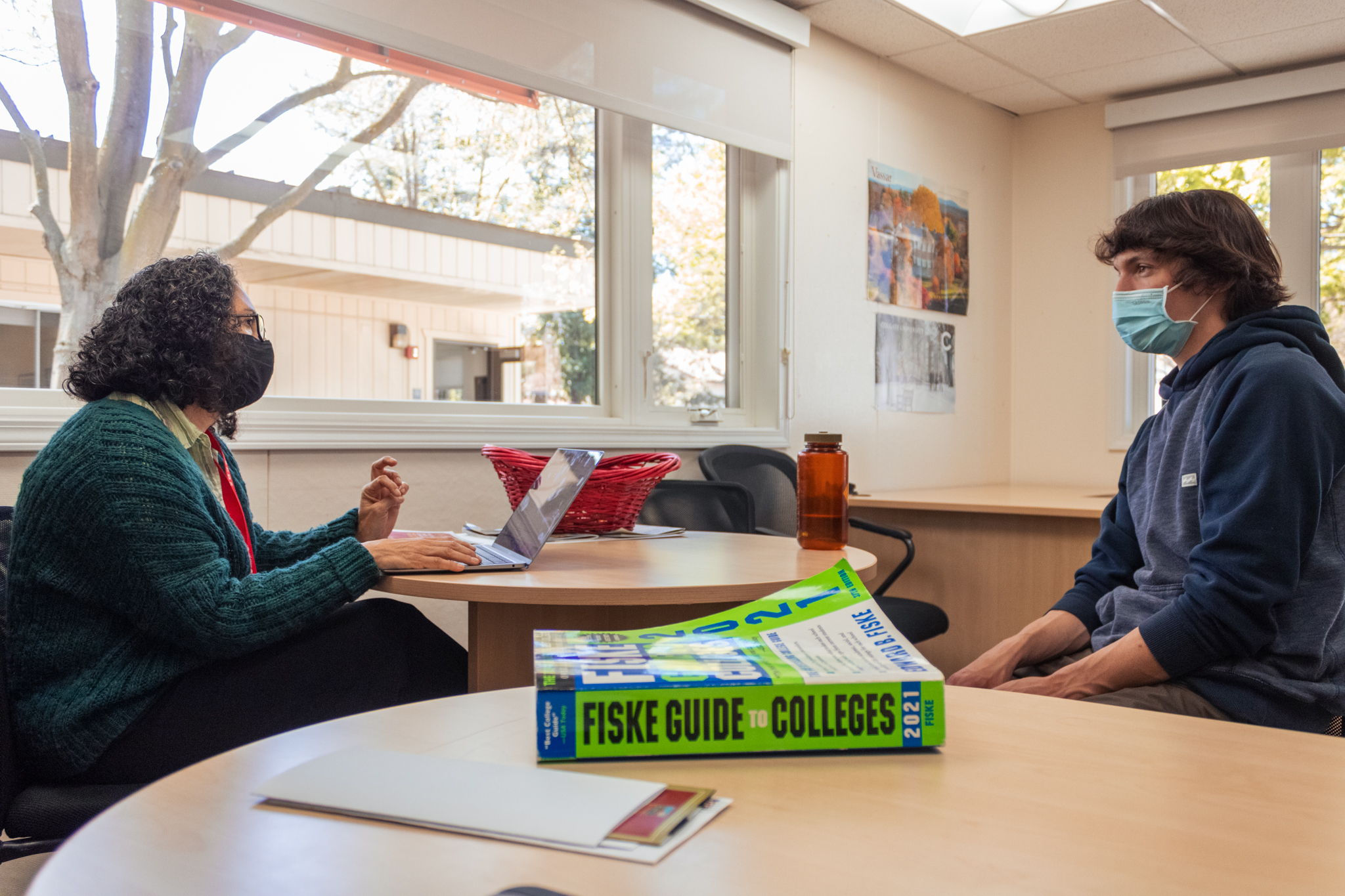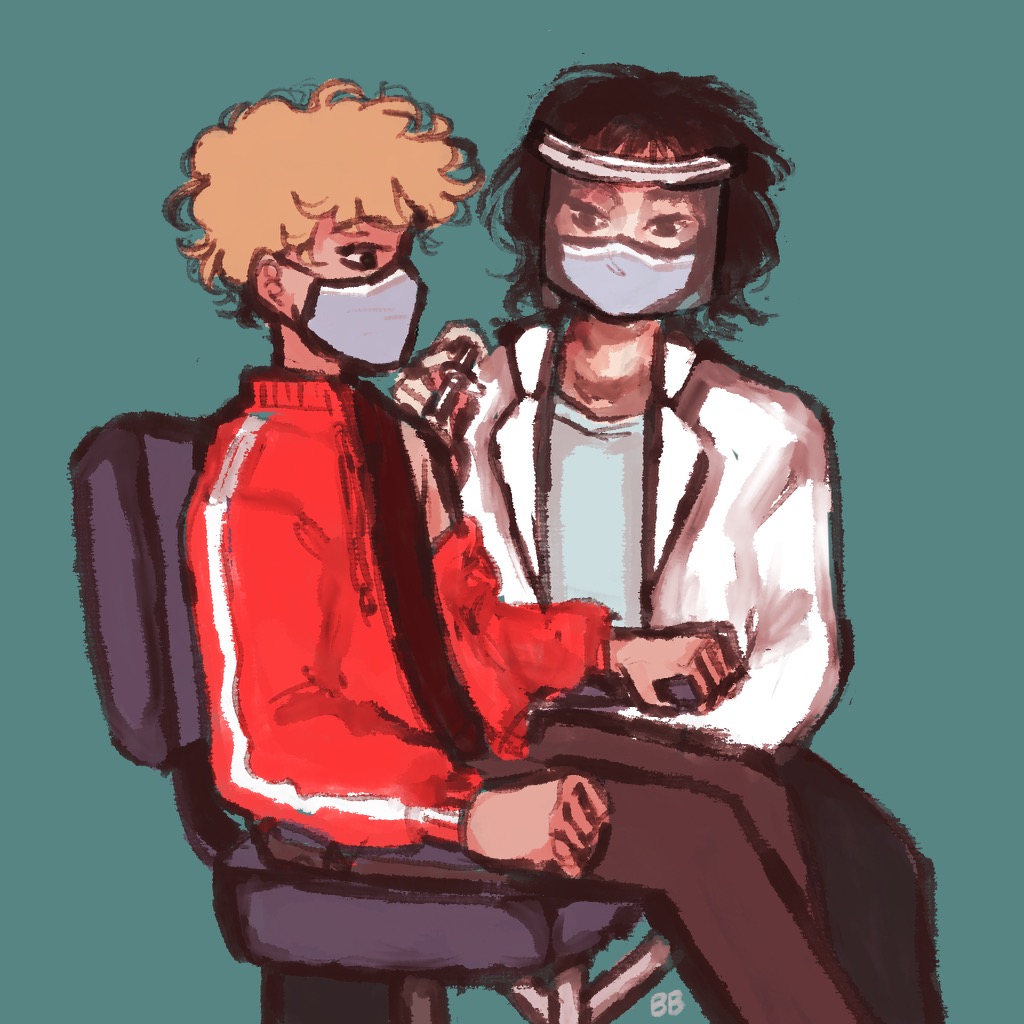Country Day has five international students — four in China and one in Taiwan — who, despite the pandemic, plan to come back to the U.S. sometime this year.
In China, where senior Stephanie Ye and juniors Tina Huang and Daisy Zhou currently reside, three COVID-19 vaccines have been released to the public.
Huang, who lives in Shenzhen, plans to return in March to take the SAT.
“I feel better about the virus and much more protected now that the vaccine is out, but I’m not totally confident just because the vaccine is still so new,” she said. “But, this gives me hope that it’s just a matter of time and the pandemic won’t last forever.”
China’s National Pharmaceutical Group Corporation released two vaccines and Sinovac, a Chinese biopharmaceutical company, released one vaccine at the end of the year.
The vaccine is currently free to all ages, Ye said.

Ye plans to return to the U.S. in May, before AP exams.
“My parents are not very comfortable with me going back now because China is not as bad as the U.S. in terms of COVID-19 cases, but I do eventually want to go back … ,” said Ye, who lives in Changzhou.
Ye’s parents’ friends have gotten the vaccine, but Ye and her family have not gotten it yet due to health concerns.
China’s controlling the pandemic well, Ye said. She was impressed with the speed of the invention and distribution of the vaccine.
“I’m proud of what China has done, and I’m sad to hear people calling this virus the Chinese virus,” Ye said. “I just hope that the situation will get better soon.”
Ye and Zhou want to get the vaccine before returning to the U.S. for their safety when traveling internationally.
Zhou, who is currently in Sanya, is thinking about returning in September, just before her senior year starts. Since one of the vaccines is specifically only for those above the age of 18, she plans on taking it when she turns 18 in September before coming back for her senior year.
Zhou and Huang both plan to wait until more people have been vaccinated to ensure that it’s safe before they get their doses.
COVID-19 outbreaks are usually contained in one place, Huang said.
Masks and washing hands frequently are required, she added. Although public places and transportation have been open for months, people still have to wear masks at all times.
If there is an outbreak in a neighborhood, it is shut down and the entire community is tested to prevent spreading, Zhou said.
Unlike China, Taiwan, where senior Joanne Tsai is staying, has not released a vaccine yet, but reports show it will likely do so by March.
“This past year, we’ve had about 800 cases, most of which are from other people who came from other countries,” said Tsai, who lives in Taipei.

“I plan to take it when it becomes available to me because I have friends who have already taken the vaccine in different countries. Then, I don’t have to be that afraid of getting the virus when I return to the states.”
Like China, Taiwan has enforced mask-wearing and frequent hand washing, but the country is no longer under quarantine.
Tsai plans to return before her senior year ends to take her belongings from her host family’s house (math teacher Patricia Jacobsen) and meet her friends before she leaves for college.
The vaccine reassures Tsai that everything will eventually return to normal.
“I mean, I wish we got the vaccine, but I know more important people like healthcare workers need it,” she said.
“What’s happening is scary. I’m always praying that my friends and family are safe, and the vaccine will hopefully wash those worries away.”
— By Sanjana Anand
Originally published in the Feb. 2 edition of the Octagon.


